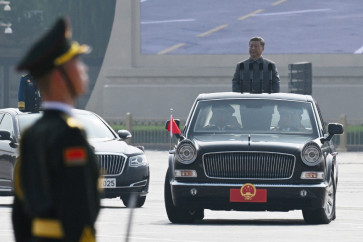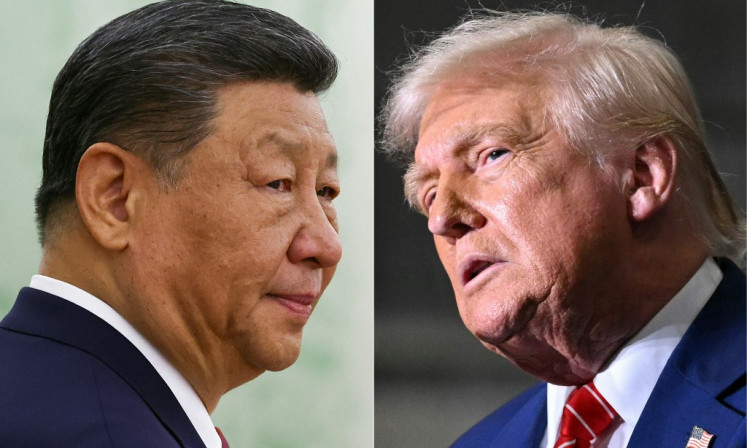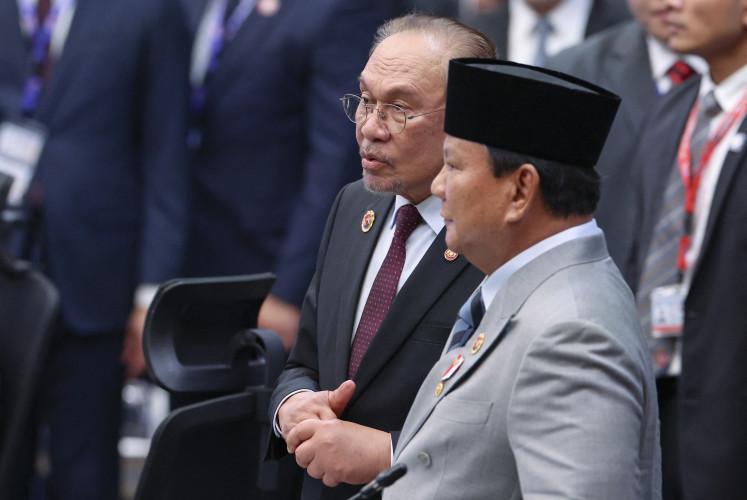Popular Reads
Top Results
Can't find what you're looking for?
View all search resultsPopular Reads
Top Results
Can't find what you're looking for?
View all search resultsEditorial: Confusing fuel-price policies
President Joko ââJokowiââ Widodo brought in an internationally praised energy policy at the start of his administration late last year, cutting the huge and wasteful spending on fuel subsidies, and introducing a managed floating price system early in January
Change text size
Gift Premium Articles
to Anyone
P
resident Joko ''Jokowi'' Widodo brought in an internationally praised energy policy at the start of his administration late last year, cutting the huge and wasteful spending on fuel subsidies, and introducing a managed floating price system early in January.
But the government's announcement a few weeks ago that it would lower the subsidized prices of low-octane gasoline by 3.4 percent to Rp 7,150 (US$0.52) per liter and diesel oil by 11 percent to Rp 5,950 starting next month is rather confusing.
The grand announcement instead appears as further evidence that when it comes to fuel prices, the Jokowi government, like all previous administrations, is vulnerable to political pressure for populist measures even when they damage the long-term foundations of the economy.
The problem is that the government has never fully implemented its managed floating fuel-price policy when it comes to upward adjustment. The upward adjustments made last April were far less than what the price-floating mechanism requires.
But now when the market developments allow for a price cut, it has been tempted to make a lot of political grandstanding out of what should have been a normal periodical adjustment.
The Constitution does not allow the government to fully unleash market forces to determine local fuel prices. That is why the system is called a managed float, not a free-market float system, with a mechanism still tied to fixed ceiling prices, allowing the government to again intervene in retail fuel prices if oil prices increase dramatically.
Under this regime, the fuel subsidy per liter will not fluctuate freely along with oil market prices or rupiah exchange rate quotations because the government still sets the upper and lower price limits.
This managed floating system has been welcomed as a compromise and a good policy. It will spare the government the wasteful political bickering with the House of Representatives every time international oil prices rise sharply and will free the government from the clutches of the wildly volatile international oil market.
As the range of upper and lower price limits set for the managed floating is designed to be close to fuel economic costs, the policy also should be effective in gradually phasing out fuel subsidies.
The problem is that no one can accurately predict the direction of oil prices, which are influenced by so many economic and political factors. And as we now depend on imports for almost 60 percent of our fuel needs, fuel production costs depend on the sources of supply and the rupiah exchange rate.
Had the government consistently and fully implemented the managed floating fuel-price mechanism through quarterly price adjustments since January ' whether up or down ' quarterly price changes would have been moderate, thereby protecting the economy from sharp price fluctuations and strong inflationary pressures.
The quarterly price adjustments would also have provided policy predictability for the market, as the price signals provide the right guidelines for companies interested in developing renewable energy.










